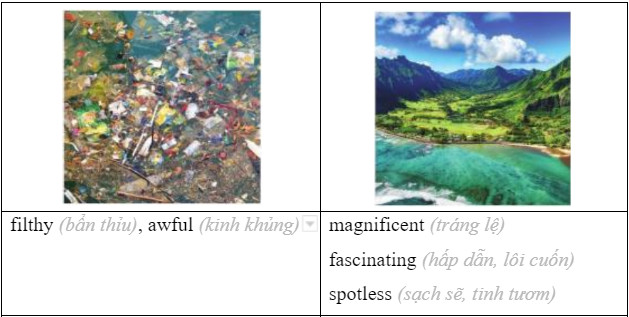Read the following passage and choose the letter A, B, C, or D to indicate the correct answer to each of the questions:Esperanto is what is called a planned, or artificial language. It was created more than a century ago by Polish eye doctor Ludwik Lazar Zamenhof. Zamenhof believed that a common language would help to alleviate some of the misunderstandings among cultures.In Zamenhofs first attempt at a universal language, he tried to create a language that was as uncomplicated as possible....
Đọc tiếp
Read the following passage and choose the letter A, B, C, or D to indicate the correct answer to each of the questions:
Esperanto is what is called a planned, or artificial language. It was created more than a century ago by Polish eye doctor Ludwik Lazar Zamenhof. Zamenhof believed that a common language would help to alleviate some of the misunderstandings among cultures.
In Zamenhofs first attempt at a universal language, he tried to create a language that was as uncomplicated as possible. This first language included words such as ab, ac, ba, eb, be, and ce. This did not result in a workable language in that these monosyllabic words. though short, were not easy to understand or to retain
Next, Zamenhof tried a different way of constructing a simplified language. He made the words in his language sound like words that people already knew, but he simplified the grammar tremendously. One example of how he simplified the language can be seen in the suffixes: all nouns in this language end in 0, as in the noun amiko, which means "friend," and all adjectives end in -a, as in the adjective bela, which means "pretty." Another example of the simplified language can be seen in the prefix mal-, which makes a word opposite in meaning; the word malamiko therefore means "enemy," and the word malbela therefore means "ugly" in Zamenhofs language.
In 1887, Zamenhof wrote a description of this language and published it. He used a pen name, Dr. Esperanto, when signing the book. He selected the name Esperanto because this word means "a person who hopes" in his language. Esperanto clubs began popping up throughout Europe and by1905, Esperanto had spread from Europe to America and Asia.
In 1905, the First World Congress of Esperanto took place in France, with approximately 700 attendees from 20 different countries. Congresses were held annually for nine years, and 4,000 attendees were registered for the Tenth World Esperanto Congress scheduled for 1914, when World War I erupted and forced its cancellation.
Esperanto has had its ups and downs in the period since World War I. Today, years after it was introduced, it is estimated that perhaps a quarter of a million people are fluent in it. This may seem like a large number, but it is really quite small when compared with the billion English speakers and billion Mandarin Chinese speakers in today's world. Current advocates would like to see its use grow considerably and are taking steps to try to make this happen
Which paragraph describes the predecessor to Esperanto?
A. The second paragraph
B. The first paragraph
C. The third paragraph
D. The last paragraph










- In 2018, Finland was the happiest in the world.
(Năm 2018, Phần Lan là quốc gia hạnh phúc nhất thế giới.)